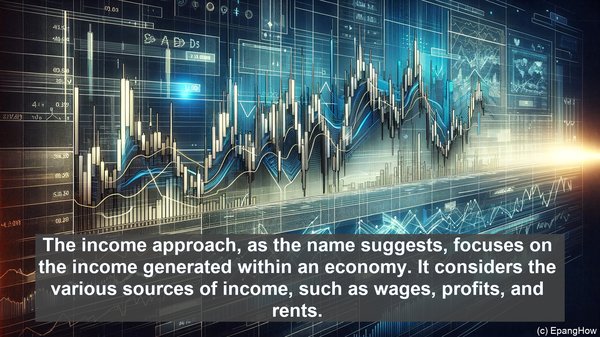Introduction: Unraveling the Complexity of GDP Calculation
Hello everyone! In the realm of economics, Gross Domestic Product (GDP) is a vital metric that provides insights into a nation’s economic health. Calculating GDP involves considering various approaches, each shedding light on different aspects of economic activity. Today, we’ll delve into two such approaches: the income approach and the expenditure approach. By understanding their nuances, we can gain a comprehensive understanding of a nation’s economic landscape.
The Income Approach: Tracing the Flow of Earnings
The income approach, as the name suggests, focuses on the income generated within an economy. It considers the various sources of income, such as wages, profits, and rents. By summing up these earnings, we can gauge the overall economic activity. This approach is particularly useful when analyzing sectors where income is the primary indicator of economic performance, such as service industries.
The Expenditure Approach: Tracking the Flow of Spending
In contrast, the expenditure approach centers around tracking the spending within an economy. It considers the various components of expenditure, including consumption, investment, government spending, and net exports. By aggregating these expenditures, we can gauge the overall economic activity. This approach is particularly valuable when analyzing sectors where spending is a key driver, such as retail or construction.

Interpreting the Results: Insights from Both Approaches
While the income and expenditure approaches provide different perspectives, they ultimately converge to provide a holistic understanding of the economy. Discrepancies between the two can also offer insights into the economic dynamics. For instance, if the expenditure approach indicates robust spending, but the income approach shows stagnant earnings, it could signal potential issues, such as a widening income gap or increased reliance on credit.
Significance in Policy Formulation: Tailoring Strategies to the Context
The choice between the income and expenditure approaches can also impact policy formulation. For instance, if the goal is to stimulate economic growth, a policy that encourages spending might be more effective. On the other hand, if the aim is to address income inequality, a policy that focuses on boosting earnings might be more appropriate. By considering both approaches, policymakers can develop a more nuanced and comprehensive strategy.

